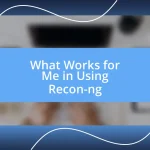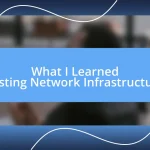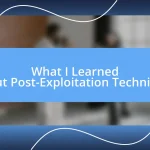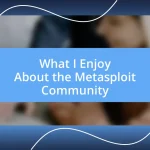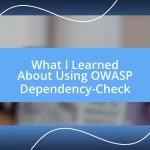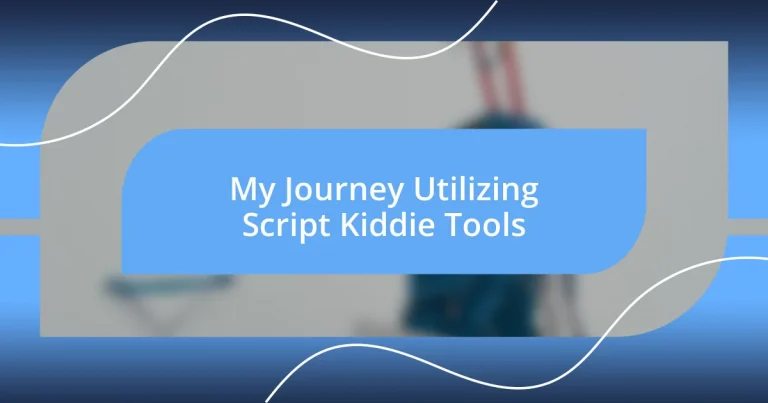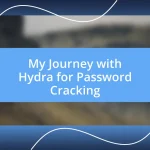Key takeaways:
- Script kiddie tools lower the barrier to hacking, enabling novices to participate in the cyber landscape, but raise ethical dilemmas regarding responsibility and exploitation.
- Engagement with script kiddie tools requires careful consideration of ethical implications, emphasizing the distinction between white-hat and black-hat hacking motives.
- Learning from experiences and community interaction is essential for growth, and reflecting on successes and failures helps refine skills and ethical perspectives in hacking.
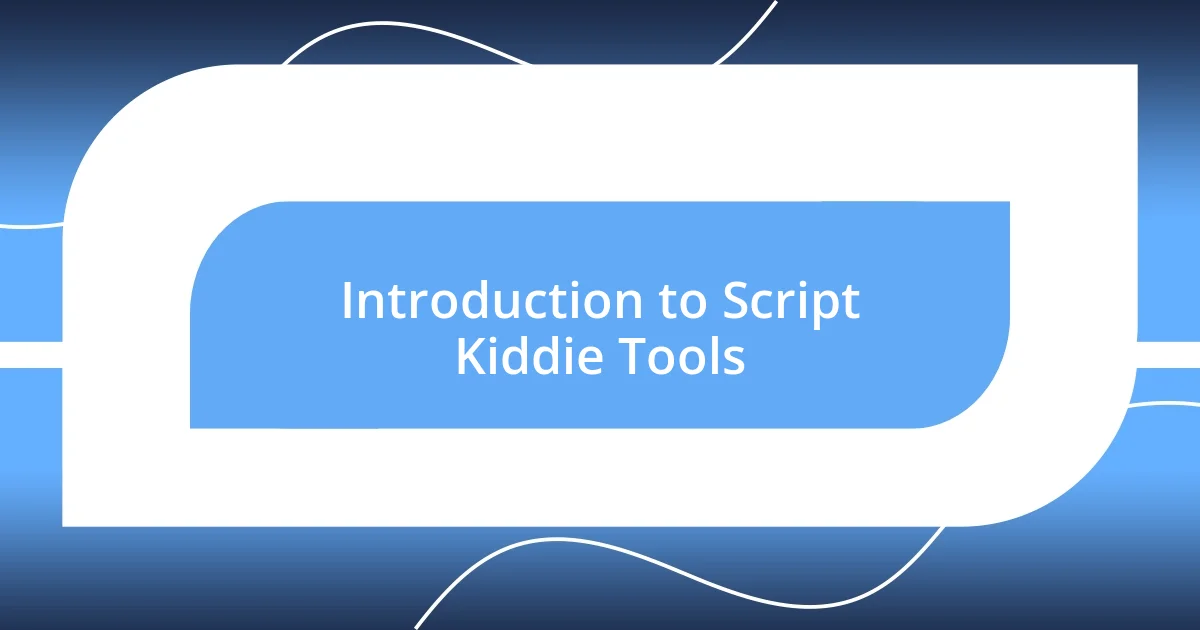
Introduction to Script Kiddie Tools
When I first stumbled upon script kiddie tools, I was intrigued by their appeal. It felt like stepping into a hidden world where technical prowess was less about knowledge and more about leveraging existing tools. Have you ever felt that rush of excitement when you discover shortcuts to complex tasks? That was my experience as I navigated these tools.
Script kiddies, often viewed with skepticism, utilize scripts or software created by others to execute hacks without deep coding knowledge. I remember my early days experimenting with these tools; the irony of using someone else’s hard work to perform hacks was both amusing and eye-opening. It made me question the line between creativity and laziness in the hacking community.
These tools can be incredibly user-friendly, lowering the barrier to entry for novices. I often wonder: does this democratization of hacking knowledge empower a new generation of cyber enthusiasts, or does it create more chaos? The emotions tied to this debate are complex; while I respect the craft of coding, I can’t deny the thrill of witnessing someone who once felt powerless transform into a capable hacker overnight thanks to a script kiddie tool.
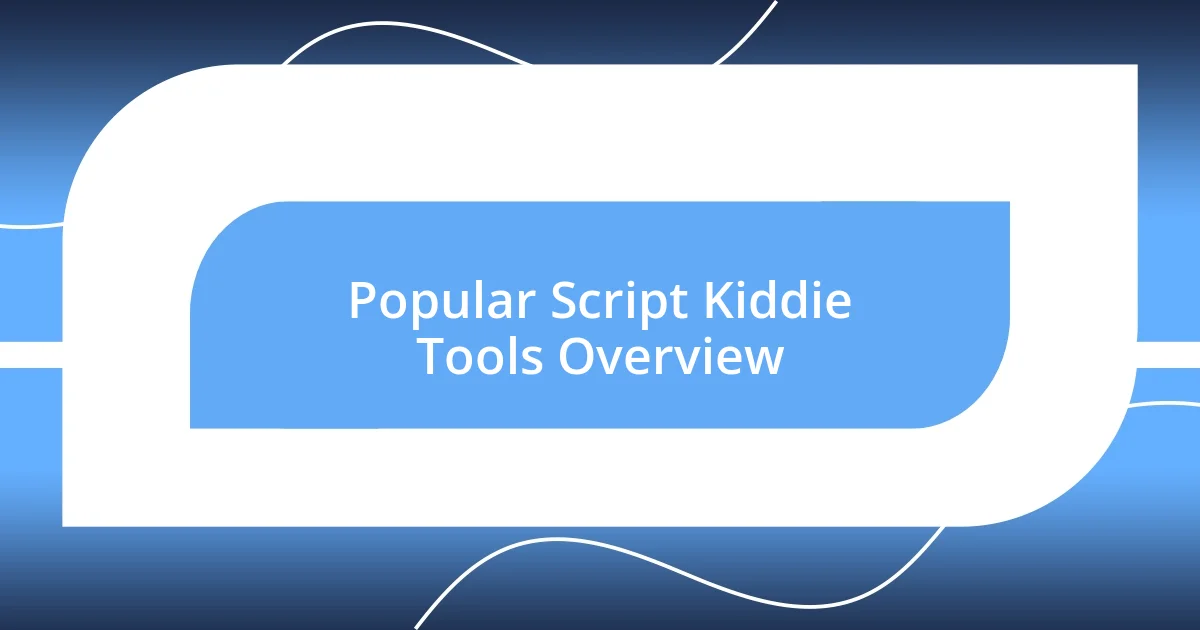
Popular Script Kiddie Tools Overview
Diving into the world of script kiddie tools reveals an impressive variety. Each tool serves its unique niche, often designed to simplify tasks that would otherwise require meticulous coding knowledge. I recall the first time I used a basic DDoS (Distributed Denial of Service) tool; the adrenaline rush was palpable. It was a stark reminder of how powerful these seemingly simple scripts can be, transforming a novice into an active participant in the cyber landscape.
Here are some of the most popular script kiddie tools I encountered:
- LOIC (Low Orbit Ion Cannon): Primarily used for stress testing websites, it became infamous for its ease of use during acts of hacktivism.
- Metasploit: A powerful framework that allows users to find and exploit vulnerabilities in systems, giving script kiddies plenty of opportunities to flex their newfound skills.
- SQLMap: This tool automates the process of detecting and exploiting SQL injection flaws, making it a favorite for those looking to gain unauthorized access to databases.
- Nessus: While predominantly a vulnerability scanner, it gives script kiddies insights into system weaknesses that can be exploited easily.
- Aircrack-ng: A suite for Wi-Fi cracking, it allows users to test the strength of networks, which can lead to a thrilling experience for beginners eager to break through security.
These tools often fill aspiring hackers with a sense of empowerment. But, I find myself questioning the potential consequences that come with that empowerment. The fine line between exploration and exploitation can lead to ethical dilemmas that weigh heavily on anyone who delves deeply into this world.
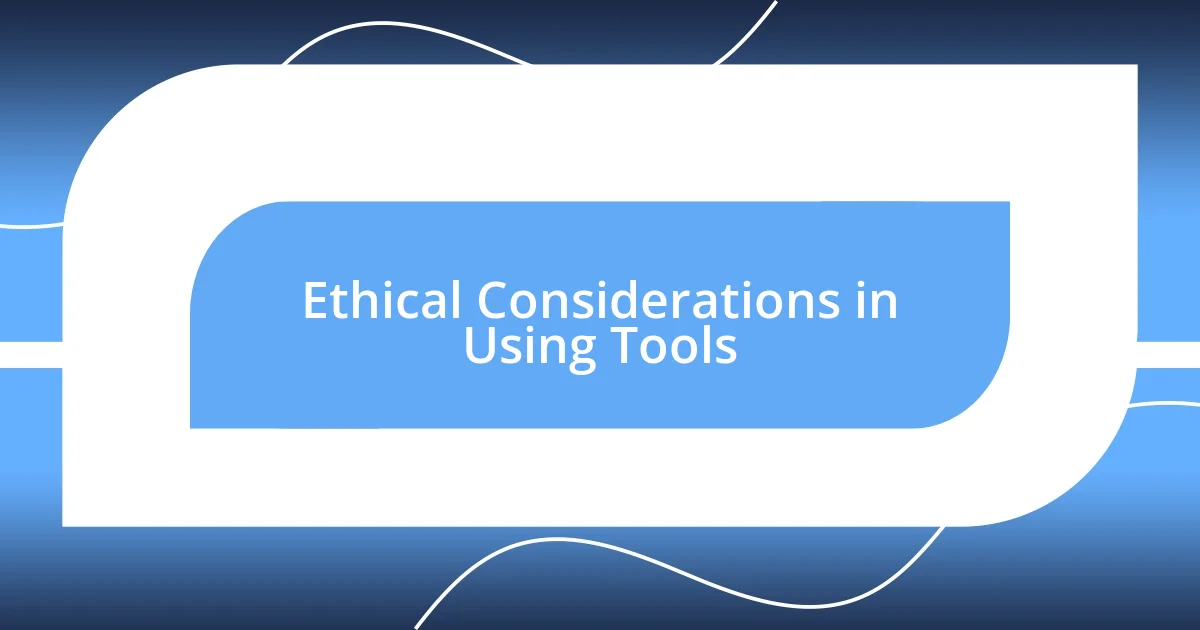
Ethical Considerations in Using Tools
Utilizing script kiddie tools definitely comes with a host of ethical considerations. For instance, I often reflect on the moment I realized the power I held when executing a simple script. It felt exhilarating but also haunting. I couldn’t shake the thought: just because I could, did that mean I should? This internal struggle often reminds me that with great power comes great responsibility, especially in a digital realm where the consequences of one’s actions can be profound and far-reaching.
As I continued my journey, I found myself grappling with the potential impacts of my actions on others. It’s easy to become swept up in the thrill of a successful hack, but I began to understand the human stories behind those systems—businesses disrupted, personal data exposed. I recall a conversation with a friend who had been a victim of a data breach; his frustration and fear really hit home. It became clear that ethical hacking should be grounded in respect for others and a commitment to improving cybersecurity rather than exploiting vulnerabilities for personal gain.
In considering these ethical dilemmas, I’ve learned that context matters immensely. There’s a vast difference between white-hat hackers, who aim to strengthen security, and those who use their skills for malicious intents. I now often ask myself: what is the ultimate goal of my engagement with these tools? Striving for clarity on this question has helped me navigate the moral landscape of hacking more thoughtfully.
| Ethical Consideration | Impact on Individuals |
|---|---|
| Empowerment vs. Responsibility | Feeling powerful without understanding responsibilities can lead to harmful exploits. |
| Respecting Privacy | Ignoring the human stories behind systems may contribute to unjust harm. |
| White-hat vs. Black-hat | Ethics differ widely; working to enhance security has positive ramifications, while malicious intent does not. |
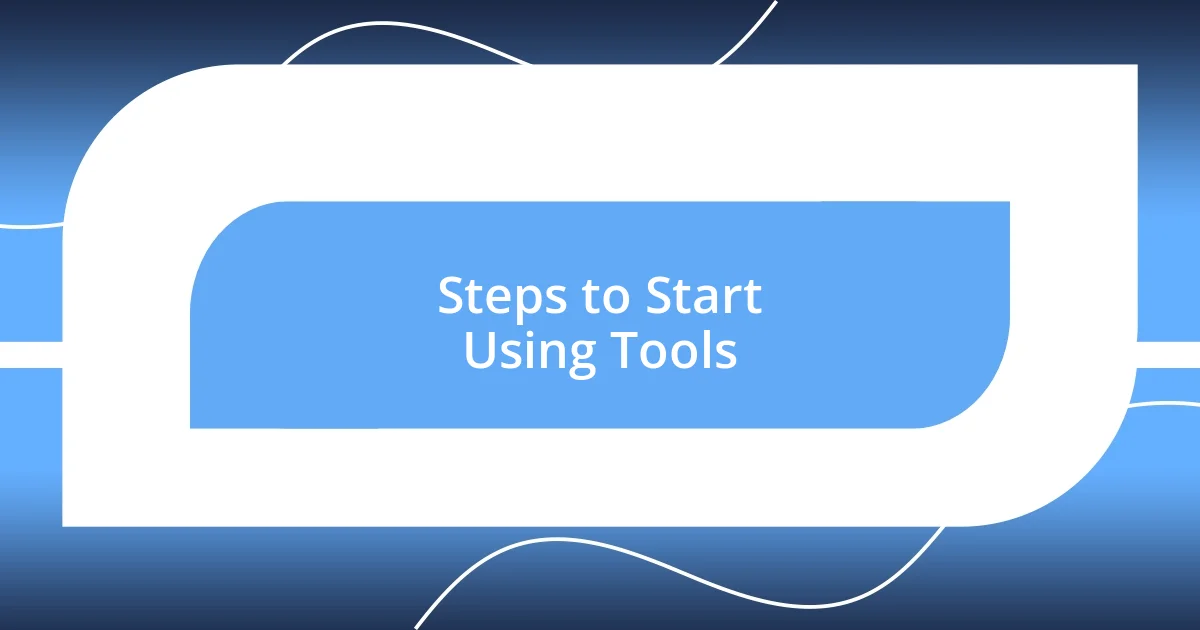
Steps to Start Using Tools
Getting started with script kiddie tools might seem daunting at first, but the process can be quite straightforward. I remember when I took my first step—deciding on which tool resonated with me. It’s essential to do some research and determine which tool aligns with your goals. That first click to download was exhilarating. I know I wasn’t just getting software; I was embarking on a journey of discovery.
Once you’ve chosen a tool, familiarizing yourself with the documentation can’t be overstated. I learned this the hard way during my early experiments with SQLMap. I jumped right in, thinking I could wing it, only to be overwhelmed by the features and possibilities. Reading up on the tool not only clarified its functions but also laid the groundwork for understanding how to use it ethically and effectively. Does anyone else get that rush when piecing together knowledge and practice? I sure do.
Next, try running some simple tests in a controlled environment, like a virtual lab. I vividly recall my first attempt at using LOIC; I set it up against a sandbox server I controlled. The thrill of seeing the tool in action while knowing I wouldn’t cause any real harm was a pivotal moment. It made me realize that gaining proficiency is about practicing responsibly—it’s about learning without leaving a negative footprint. How did I go from being a curious onlooker to actively engaging in the cyber landscape? It’s all about taking these deliberate steps that build both skill and awareness.
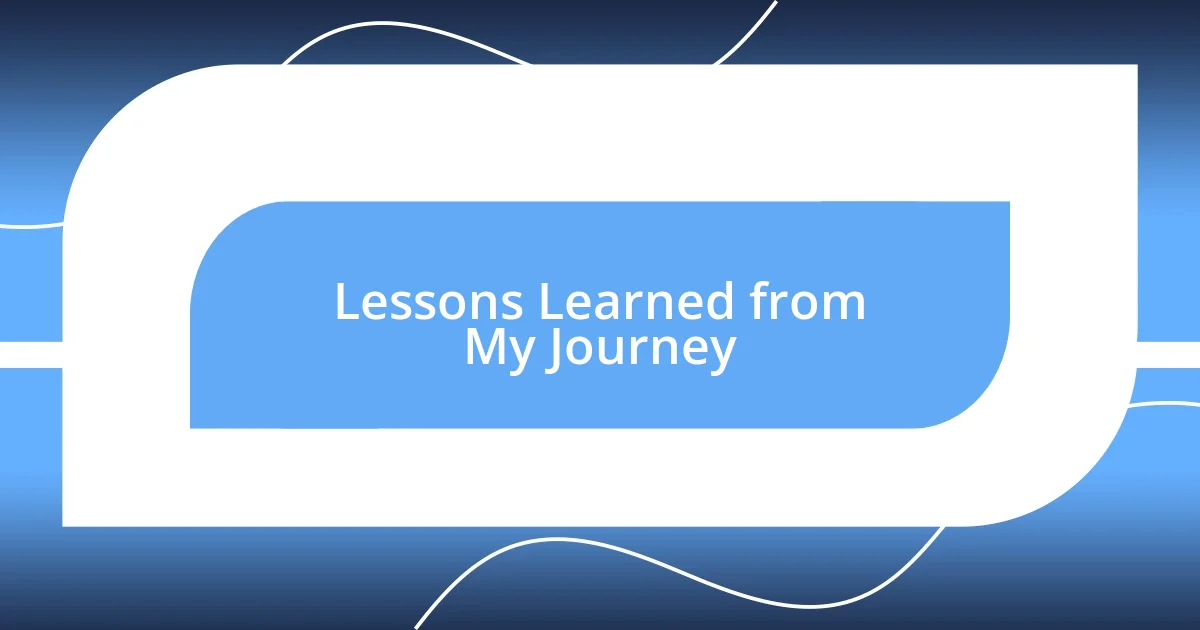
Lessons Learned from My Journey
Throughout my journey, I’ve learned that patience is essential when working with script kiddie tools. I recall the times I rushed into projects, eager to prove my skills, only to face frustrating setbacks. It taught me that taking the time to understand a tool’s nuances, rather than diving in recklessly, can save a lot of trouble down the line. Has that ever happened to you? There’s a real satisfaction that comes from knowing you’ve mastered something step by step.
Another lesson that stood out was the importance of community. Engaging with forums and online groups opened my eyes to different perspectives and techniques. I remember my first interaction in a chat room after asking for help with a tricky issue; the support was overwhelming. It was a reminder that collaborating and learning from others can enhance both your technical skills and your sense of ethics in the hacking community. Have you found your tribe yet? It makes a world of difference.
Lastly, I’ve discovered that reflection is a critical part of growth. After each project, I set aside time to evaluate what I did well and what I could improve. This practice often leads to unexpected insights. One time, while thinking over a failed attempt at a penetration test, I realized it wasn’t just about the tools but also about my approach and mindset. What are you learning from your experiences? The more I reflected, the clearer it became that every step, whether a win or a loss, contributed to my overall journey.

